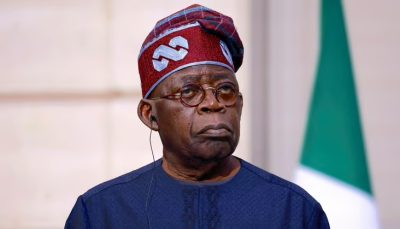Two years out from Nigeria’s next presidential election, the ruling All Progressives Congress (APC) is consolidating power while its main rivals – the Peoples Democratic Party (PDP), Labour Party (LP) and New Nigeria People’s Party (NNPP) – are mired in internal feuds. Rumours abound that President Bola Tinubu and the APC are fuelling these crises, though the presidency denies it.
Enter the Social Democratic Party (SDP), once a political heavyweight in the early 1990s. Overshadowed after the annulment of the 1993 election, which the late MKO Abiola was widely believed to have won, the party is now staging what some describe as a “miraculous resurgence”.
It has attracted high-profile defectors, including former Kaduna State governor Nasir El-Rufai, prompting questions about whether nostalgia for the SDP’s past, coupled with opposition discontent, can mount a real challenge to the APC in 2027.
The legacy of SDP and its return to the spotlight
Formed in 1989 under military rule, the SDP captured national attention when its candidate, Abiola, appeared to secure victory in what many still regard as Nigeria’s fairest election – until it was annulled. When democracy returned in 1999, newer parties, most notably the PDP, quickly eclipsed the SDP. By 2023, the party’s presidential nominee, Adewole Adebayo, barely registered against the APC, PDP, LP and NNPP.
Though the SDP holds a handful of legislative seats in Nasarawa State, it has never captured a governorship nor built the kind of nationwide structure associated with winning coalitions.
Political defections boost the SDP’s visibility
That modest track record has not deterred new arrivals. El-Rufai’s defection in March, which he claimed had the blessing of former President Muhammadu Buhari, triggered a wave of moves. Senator Ahmad Babba Kaita of Katsina North and cleric Imam Nura Gwanda soon followed, citing disillusionment with Tinubu’s administration. Muhammed Yusuf Jibril then brought 200 councillorship candidates from the NNPP, proclaiming they would unite behind El-Rufai “to save Nigeria”.
Shehu Gabam, the SDP’s national chairman, says he welcomes multiple “VIP” resignations daily, dubbing the party “the vehicle for a coalition” in 2027 – an echo of how Buhari’s Congress for Progressives Change merged with Tinubu’s Action Congress of Nigeria in 2013 to form the APC.
Can a coalition disrupt the APC’s stronghold?
Former Vice President Atiku Abubakar, who leads an alliance to unseat Tinubu, has been linked to talks with the SDP, as has Labour’s Peter Obi. However, Segun Sowunmi of the PDP warns that copying the APC’s 2013 playbook does not guarantee success. He points to new political dynamics and lingering personal ambition. Mark Adebayo of the Coalition of United Political Parties agrees, arguing that any merger is easily derailed by competing egos.
Analysts also question whether these defections will resonate with a public weary of political musical chairs. Ezenwa Nwagu, a political commentator, calls the recent arrivals “disabled politicians” recycling old tactics. Meanwhile, the SDP’s limited electoral achievements – no governorships and scant representation – prompt scepticism about its capacity to seriously challenge a well-funded ruling party.
El-Rufai’s influence and the risk of another elite club
Despite doubts, El-Rufai’s move has generated intrigue. Until recently, he was a pivotal figure in the APC, known for his close ties to Buhari. His exit could signal deeper unrest within the ruling party, especially in the North. Still, critics note that unless the SDP articulates a coherent platform, it risks becoming a refuge for disenchanted politicians rather than a genuine alternative. A voting public disillusioned by endless defections may demand more than just a shift in party labels.
2027 elections: A chance or a mirage for SDP?
SDP chairman Gabam insists his party is serious about the presidency, arguing that growing frustration – especially among northern politicians – offers fertile ground for a new coalition. If the SDP can harness dissatisfaction with economic hardship and security concerns, it might present a credible alternative.
Yet the APC retains significant advantages: incumbency, strong funding networks and grassroots support. Meanwhile, discord within the PDP, LP and NNPP could inadvertently smooth the APC’s path to re-election.
Ultimately, whether the SDP can convert its uptick in popularity into a real threat hinges on unity, policy depth and voter trust. Nostalgia for 1993 might help gain attention, but it will not suffice if disaffected elites merely swap uniforms without addressing citizens’ core grievances. The party must demonstrate a vision that goes beyond elite politicking and taps into genuine public yearning for change.
What’s next for SDP?
With two years to prepare, the SDP has a window to show it can go beyond symbolism and defections. If it forges a credible manifesto, reaches out to the grassroots, and balances personal ambitions within a broader alliance, it could reshape Nigeria’s political calculus in 2027. Should it fail, the APC may face little competition, as the traditional opposition parties remain rife with infighting.
For now, the SDP’s “miraculous resurgence” signals that at least some politicians regard it as the most viable new home. Whether that amounts to a lasting realignment or another fleeting wave of defectors hinges on the party’s next moves and how resolutely it can persuade Nigerians that it is more than a short-lived vehicle for embattled power brokers.
In a fluid political arena, the SDP’s rise may yet prove pivotal, forcing the APC to reckon with a revitalised opposition bloc—if the newcomers can find common ground and deliver a consistent message.
(The Africa Report)


